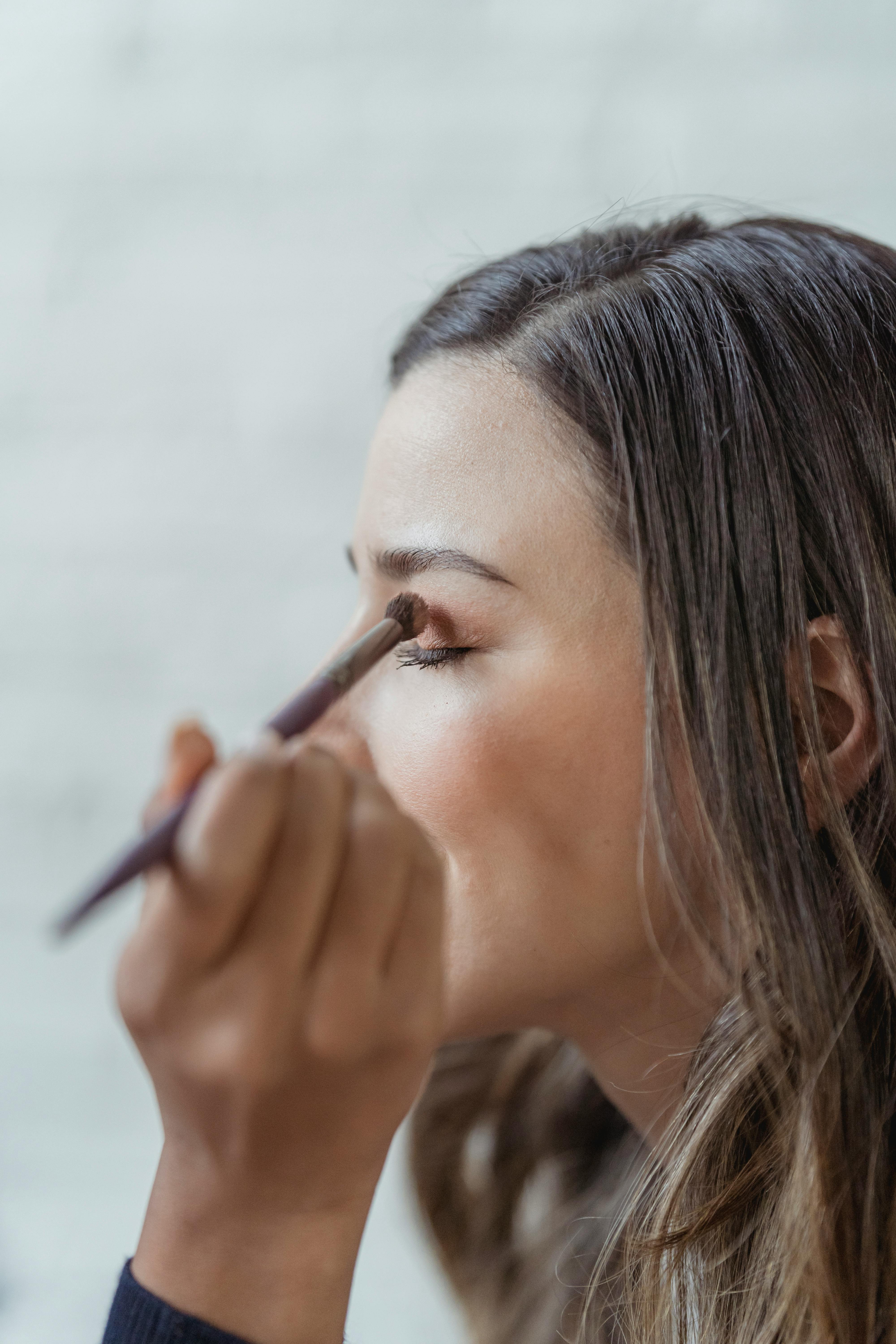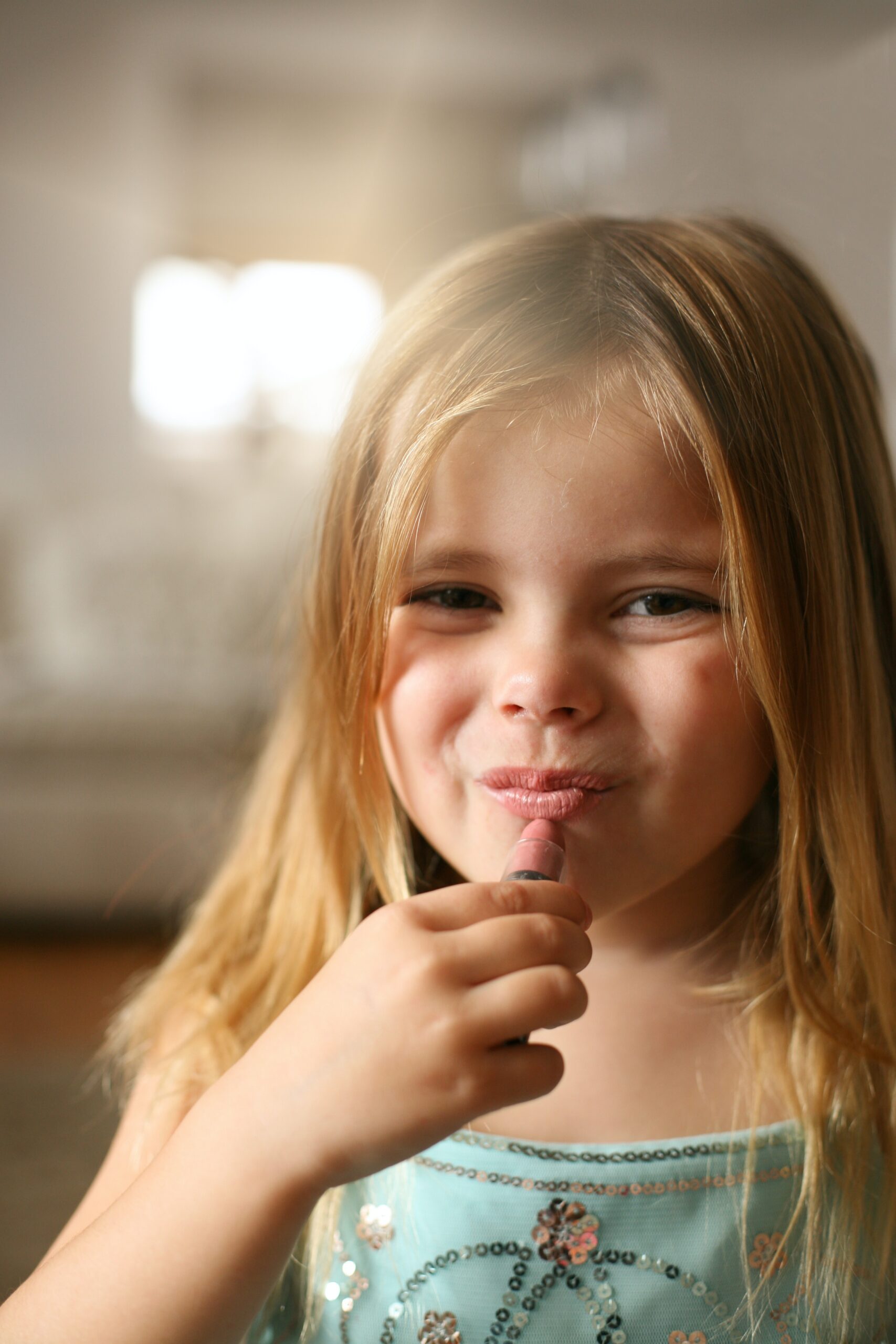1140 words / 6649 characters
The Makeup Debate: How Young is Too Young to Experiment with Cosmetics?

Image Source: Pexels
## Introduction: The Growing Trend of Young Girls Experimenting with Makeup
Makeup has become increasingly popular among young girls in recent years. With social media platforms showcasing glamorous beauty trends and tutorials, it is no wonder that many girls are eager to experiment with cosmetics at a young age. However, this trend raises an important question: How young is too young to start using makeup? In this article, we will explore the psychological impact of early exposure to cosmetics, the societal pressure on young girls to wear makeup, and the developmental considerations that come into play when deciding at what age girls should start wearing makeup.
The Psychological Impact of Early Exposure to Cosmetics
Early exposure to cosmetics can have both positive and negative psychological effects on young girls. On one hand, experimenting with makeup can foster creativity, self-expression, and boost self-confidence. It allows girls to explore different styles and enhance their natural features. However, it is crucial to consider the potential negative impact as well. Studies have shown that young girls who are exposed to makeup at a tender age may develop unrealistic beauty standards, leading to body dissatisfaction and low self-esteem. It is important for parents and guardians to monitor and educate young girls on the purpose and limitations of makeup, ensuring that it is used as a tool for self-expression rather than a means to conform to societal beauty standards.
The Societal Pressure on Young Girls to Wear Makeup
Society places immense pressure on girls to conform to certain beauty standards, and makeup plays a significant role in this pressure. Media advertisements, movies, and even toys often depict women with flawless makeup, creating an unrealistic expectation for young girls. This pressure can be overwhelming, making girls feel like they need to wear makeup to be accepted or attractive. It is essential for parents and caregivers to counteract this pressure by promoting self-acceptance, emphasizing the importance of inner beauty, and teaching young girls that makeup should be a personal choice rather than a necessity.
Developmental Considerations: At What Age Do Girls Start Wearing Makeup?
There is no definitive answer to the question of what age girls should start wearing makeup, as it varies from individual to individual. However, developmental considerations can provide guidance. Generally, girls start showing an interest in makeup during early adolescence, around the ages of 11 to 14. This is a time when they are exploring their identities and seeking ways to express themselves. It is important for parents to have open and honest conversations with their daughters about makeup, discussing the purpose, limitations, and potential risks associated with it. Ultimately, the decision should be based on the child’s maturity level, self-esteem, and understanding of the concept of makeup.
The Potential Risks of Early Makeup Use
While makeup can be a fun and creative tool, there are potential risks associated with early makeup use. Young and delicate skin is more prone to allergies, irritations, and clogged pores. Additionally, excessive use of makeup at a young age can hinder the development of healthy skincare habits, leading to long-term skin issues. Parents should encourage their daughters to prioritize skincare over makeup, teaching them the importance of cleansing, moisturizing, and protecting their skin. It is also crucial to monitor the quality of the makeup products used, ensuring that they are age-appropriate and hypoallergenic.
Parental Guidance and Communication on the Topic
When it comes to makeup, parental guidance and communication are paramount. Parents should take an active role in discussing the topic with their daughters, providing guidance on age-appropriate makeup use and setting boundaries. By establishing an open and non-judgmental line of communication, parents can address any concerns, answer questions, and provide guidance on healthy self-image. It is important to teach young girls that makeup should enhance their natural beauty rather than hide or change their appearance. Encouraging them to develop a positive relationship with makeup will help them make informed decisions and navigate societal pressures.
Nurturing Self-Esteem and Embracing Natural Beauty
Promoting self-esteem and embracing natural beauty are key factors in allowing young girls to develop a healthy relationship with makeup. Parents can foster self-esteem by emphasizing their daughters’ unique qualities, talents, and accomplishments. Teaching them to appreciate their natural features and encouraging positive self-talk can help counteract the negative impact of societal beauty standards. In addition, parents can introduce their daughters to skincare routines that promote healthy skin and self-care habits. By focusing on overall well-being and self-acceptance, young girls can develop a strong foundation for a positive self-image.
Alternatives to Traditional Makeup for Young Girls
For parents who are hesitant about allowing their young girls to wear traditional makeup, there are alternatives available that can still foster creativity and self-expression. Age-appropriate options such as tinted lip balms, flavored lip glosses, or non-toxic nail polishes can provide a safe avenue for girls to explore the world of cosmetics. These alternatives allow them to experiment without the potential risks associated with traditional makeup. Parents can also encourage their daughters to explore other forms of self-expression such as art, music, or sports, which help develop confidence and creativity.
Encouraging Age-Appropriate Self-Expression and Creativity
While it is essential to set boundaries and consider the potential risks, it is equally important to encourage age-appropriate self-expression and creativity. Parents can support their daughters’ interests by providing them with opportunities to explore different forms of self-expression, whether it be through makeup, fashion, or other artistic endeavors. By allowing young girls to experiment within safe and appropriate limits, parents can foster their creativity, encourage individuality, and promote a healthy self-image.
Conclusion: Striking a Balance Between Allowing Experimentation and Promoting Healthy Self-Image
In conclusion, the question of how young is too young to experiment with makeup does not have a definitive answer. Instead, it requires a thoughtful approach that considers the psychological impact, societal pressure, developmental considerations, and potential risks associated with early makeup use. Parental guidance, open communication, and nurturing self-esteem are crucial in striking a balance between allowing experimentation and promoting a healthy self-image. By embracing natural beauty, encouraging age-appropriate self-expression, and fostering creativity, parents can help their young girls navigate the makeup debate with confidence and self-assurance.
CTA: As parents and caregivers, it is important to remember that every child is unique. Take the time to have open and honest conversations with your daughters about makeup, self-expression, and self-esteem. Encourage them to embrace their natural beauty and make informed decisions. By fostering a healthy relationship with makeup, you can empower your daughters to navigate societal pressures and develop a positive self-image.
